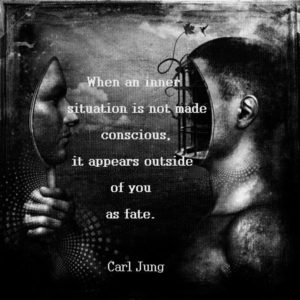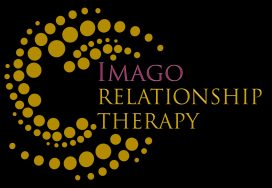Yael and I actually do possess the capacity to empathize with each other’s intentions and behavior, but it was a capacity we failed entirely to draw on that horrible, terrible, very bad morning. Even the best relationships, at times, fail to draw on this capacity; especially when our brains are “Hijacked” in conflict.
Why? Why was this so emotional for me/us? Why was I so critical, judgmental and punishing?
In part one, I mentioned that intense conflict is usually fueled, in part, by unmet needs in childhood. However, it is impossible to see how our childhood affects our current relationships because we spend most of our time projecting onto our partners.
I was projecting!
 We project psychologically when we unconsciously and unknowingly attribute our judgments about ourselves to other people.
We project psychologically when we unconsciously and unknowingly attribute our judgments about ourselves to other people.
The thing that drives me most crazy about myself is that I have difficulty setting clear boundaries, being vulnerable and asking for what I need directly.
My inability to open up, risk and be vulnerable is what I often accuse and project onto Yael.
However, while I am blaming, judging and criticizing her I can’t see that I am projecting these character traits onto her.
We human-beings have blind spots. It is often hard for us to identify and take responsibility for our shortcomings, but it can be very easy for us to see what’s wrong with other people.
The people around us, particularly our spouses, are like mirrors. We see clearly what we don’t like, but we get it backwards.
It’s not them; it’s us.
It wasn’t Yael—it’s me.
I’ve heard folks say, “You spot it, you got it.”
Psychological projection (in its many forms) is a defense mechanism. It’s often how we deal with the thoughts, motivations, desires, impulses, and feelings that are hard for us to accept in ourselves by attributing them to someone else.
Projection is a classic human behavior. I see projection all the time … in myself, in my friends, in the politicians and in my clients.
 That doesn’t mean that we are always projecting when we see other people’s flaws and shortcomings, or when we see the ways that others can learn and improve. However, it’s those times when we feel particularly emotional about a situation. When we feel hooked and irrational and/or harshly judgmental about someone else’s shortcomings or character, rather than empathetic or compassionate, we are probably projecting.
That doesn’t mean that we are always projecting when we see other people’s flaws and shortcomings, or when we see the ways that others can learn and improve. However, it’s those times when we feel particularly emotional about a situation. When we feel hooked and irrational and/or harshly judgmental about someone else’s shortcomings or character, rather than empathetic or compassionate, we are probably projecting.
Projection is an undeniable human tendency, and I think it is brilliant, because it allows us the opportunity to see ourselves more clearly and to better understand what is causing us fear, anxiety and stress. Once recognized, projection comes with a set of instructions for our own growth and happiness.
What Did I Learn About Myself?
#1. It’s not my partner’s fault when I don’t recognize and ask for what I need. It is my responsibility to know what I need and set clear boundaries without whining, criticizing, judging and exploding in anger at my partner.
#2. It is my responsibility to risk and be vulnerable rather than wishing or insisting that my partner risk and become more vulnerable. The truth is, when I don’t risk and express myself clearly, and ask for what I want directly, in a sense, I make an emotional servant of my partner and the people around me. How? I manipulate them through silence, moodiness, or absence into trying to figure out how to love me.
#3. It is my responsibility to honor, respect and keep our relational space safe and sacred so that my partner feels liberated to come out of her shell and risk expressing her true feelings with me. I want that, but I have to be aware of the ways in which I block her from doing that with my criticism, judgment and blame, rendering her unsafe. TRUTH: When Yael feels safe … I am safe and she will be free to open up and be vulnerable with me.
#4. It is my responsibility to continue expanding my knowledge and skills about how I project onto my partner and find ways to dissolve those projections so that I can see her for who she really is.
#5. It is important to understand the purpose of frustrations and love. Our understanding of love is often colored by the myth of “happily ever after.” However, love relationships will inevitably involve conflict. Conflict will either lead us to believe we are with the wrong person or challenge us to embrace a mature conception of love and relationships. The purpose of frustration is to bring to the surface unmet needs from childhood which can be healed in the adult intimate relationships. Having this purpose in mind helped me to see that there was something meaningful beyond the two of us and our pain, and that helped to sustain me and give me hope during this terrible, horrible, very bad time in our lives when giving up hope.
Want to join me in becoming vulnerable in your relationship?

Loving in Connection,
Paula M. Smith, M.Div., M.A., MFT
Certified Imago Therapist | Marriage Scholar | Seminar Leader | Citizen Therapist
401-782-7899






